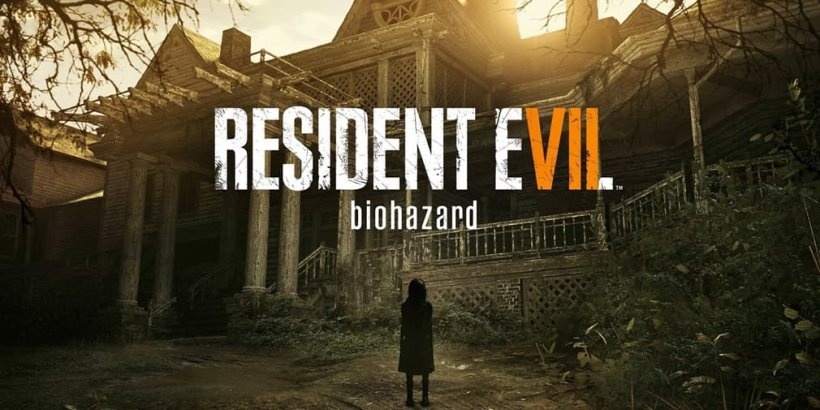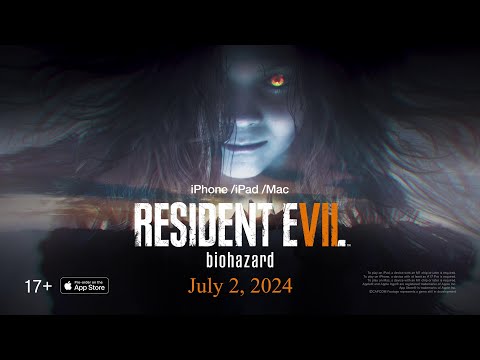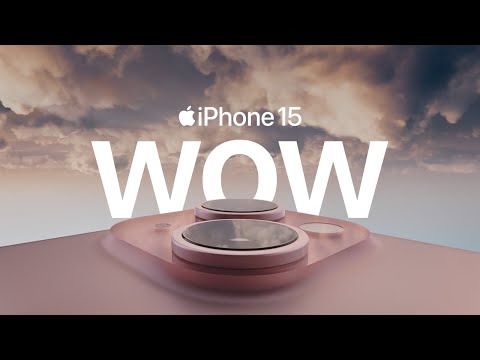Was Resident Evil 7 a failure on mobile at 2,000 sales? Well, sort of, not really, but also yes
It’s a bit more complicated than yes or no

- Resident Evil 7 on iPhone has accrued 'only' 2,000 sales
- It's encouraged a wave of beard-stroking, but is it as bad as it sounds?
- Well, sort of, but no, but maybe, but yes. Let's discuss
While it initially only made the rounds in business circles, over the last week or so we’ve seen the story of Resident Evil 7’s lacklustre iPhone sales pop into the limelight. The usual jeering from the sidelines at the temerity of mobile to try and compete with PC and console was made, and many think-pieces penned on how this failure could have happened.
But, from our perspective, we took a very different approach. Most notably we want to offer a defence for Resident Evil 7 on iPhone, and the other major mobile ports that came off the back of Apple’s high-profile demonstrations of the iPhone 15 and new iPad’s capabilities.
Now this is not about to be some desperate attempt to rewrite history, but it will look at it from a more nuanced perspective. Most notably, what Resident Evil on iPhone did right, not just wrong.
Before we begin
It’s important to note we’re not intentionally going to bat for a billion-dollar company like Apple. And we’re certainly not about to argue that 2,000 sales are good by any metric. After all, another console port called Loop Hero accrued over seven million downloads, and if only a fraction turned into sales that’s still more than Resident Evil.But, we do think that there are some important caveats to the usual sensationalism of this being referred to as some grand failure. Factors we’re going to get into below. But ultimately, it bears repeating that this is not some kind of attempt at damage control on the concept of mobile games themselves.
Most importantly, it’s that Resident Evil 7 did fail, but not because of it being on mobile itself. And we don’t reckon that this is the last we’ll see of console-quality titles making the jump to smartphones.
With that said, let’s get started in earnest by looking at the faults.

This was a niche audience already
First of all we need to recognise a few things. For one, the iPhone 15 and iPads with the requisite technical specs to run Resident Evil 7 are still relatively rare, at least in the hands of the average consumer. On top of that, the average mainstream gamer probably either has a PC or a console that would already be capable of running a game like Resi 7.Add to that the fact that most people who want to play it on the go will already likely have a Steam Deck, laptop or other portable device, and the potential audience for this kind of port shrinks dramatically. Resident Evil 7 is not exactly a casual-friendly game, after all, and your average Supercell fan won't readily jump into the world of BOW fighting on a whim.
The asking price was too high
There’s a lot of fuss that’s been made about microtransactions and costs surrounding mobile games. However, we have to argue that the average price people would spend on mobile games is less than the upfront asking price for Resident Evil 7 on mobile. Even at roughly $20, this is still a lot to ask, especially when it can be purchased on other platforms far cheaper, especially on those where second-hand copies are feasible.And being able to try it out before you buy it means there is certainly a segment of people who would be put off by the controls and graphical sacrifices and choose to forsake a purchase, or perhaps only wanted to give it a go to see what their snazzy new phone could do. That's the double-edged sword of a demo after all, but it probably beats the buyer's regret.
The ultimate problem
There has been that one, frustratingly pertinent screenshot floating around showing the Resident Evil 7 iPhone screenshot, with the screen packed with prompts and buttons to press. And there’s no denying that, for a game which intentionally went with a far more minimalist approach than even previous Resident Evil games, this may have been a dealbreaker for many.The fact is that mobile has many advantages. It’s egalitarian, it’s an open space, and it theoretically offers a very low barrier to entry. But there is one problem, the ultimate problem, and it’s the touchscreen.
If Resident Evil 7 for iPhone, in some alternate universe, ran on a handheld device in somewhat lower quality, we reckon it would still have been well received. But because of the need to pack so many controls onto a small screen, crowding out the lush graphics that Apple and Capcom achieve, it’s undeniable that it sends a rather mixed message.
On the one hand, it’s amazing they managed to get it to run as it does. On the other hand, the problem inherent with a tiny touch screen is still there. Unlike other small handhelds like the cult-classic PSP, there’s no ignoring the fact your thumbs are crowding out the monsters. And of course, there is the caveat of there being controller support, but that’s assuming these are A) existing phone gaming enthusiasts and B) that they already prefer controllers. Not exactly representative of the broad spectrum audience.

But on the other hand...
Here’s where we will dissent with most voices, and that’s what the future holds for games like Resident Evil 7 on mobile. There’s always that old chestnut of “This is just the growing pains, it’s going to get better soon!” that everyone trots out in cases like this. But we do reckon that these are indeed growing pains.For one, Resident Evil 7 was not intended as a commercial release, we reckon. We’d be genuinely surprised if either Apple or Capcom expected this to break the bank, or even make them any significant money. But that’s not the point.
The point of releasing Resident Evil 7, 8, and Assassin’s Creed Mirage, is not to make money. It’s for Apple to once more have the ability to boast of their technical prowess and their status. It’s to say “Hey, we can get this running on a device in the palm of your hand.”
We doubt Apple presented this to Capcom as an opportunity to make big bucks. As even if half of the 84,000 people who've downloaded the game made the jump to a full purchase, it'd still be minuscule compared to the over 10 million units Resi 7 has sold elsewhere.
But in terms of showing off their technical chops and, ideally, justifying the asking price for devices like the iPhone 15? We'd argue Resident Evil 7 and AC Mirage succeeded there.
What’s the point?
So the point is, from a pure sales perspective, Resident Evil 7 was a failure. But from the perspective of proving Apple still has the technical chops to push the boundaries, it was a success. The only question is whether or not we’re going to see ports like this become more common in the future.Resident Evil is here to stay on iOS for now. But Apple will likely not be able to point to it as a reason for other console developers to invest, not unless they strike up a rather compelling business deal. Yet it very much lays down the gauntlet to other phone makers that there is a new ceiling to technical fidelity and what can be ported to something barely larger than a wallet.
What’s almost certain is that, as this becomes the new gold standard, we might see games take advantage of the ability to push graphical boundaries more and more. This may be good or bad news depending on your perspective.
On the one hand, it could help further legitimise more console-like mobile games, but on the other, the push for more technically demanding games could crowd out players with less capable devices. Which itself would then mess with the more egalitarian nature of mobile as a platform.

So what?
We reckon that Resident Evil 7 is not a commercial success, but a technical one. And ultimately, it presents an interesting question about exactly how mobile gaming will change in the near future.Right now, we’re seeing graphics pushed further than ever before for the smallest of mobile devices. But if there’s anything that Resident Evil 7’s low sales offer, it’s a conundrum about whether or not this will ever be feasible.
Is the touchscreen control problem what puts people off? Can that sort of inherent issue ever be solved? And what happens if or when Android-capable devices begin catching up?
We think it’s unfair to write off the Resi games on the iPhone, purely because they’re presenting new possibilities. Perhaps they’re not dazzling successes, but do they really need to be?
In any case, with the fantastic Resident Evil 2 remake coming soon to iOS we may get the chance to see whether or not things improve for this new crop of Capcom ports.
